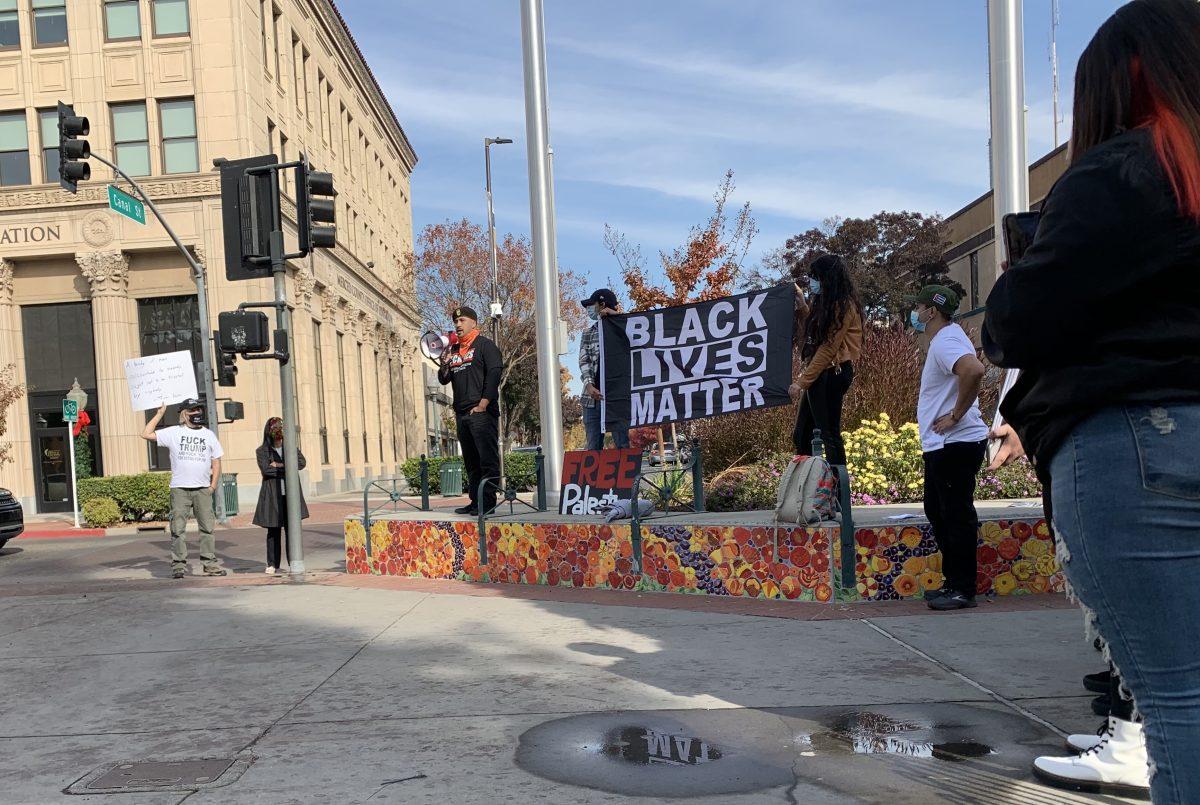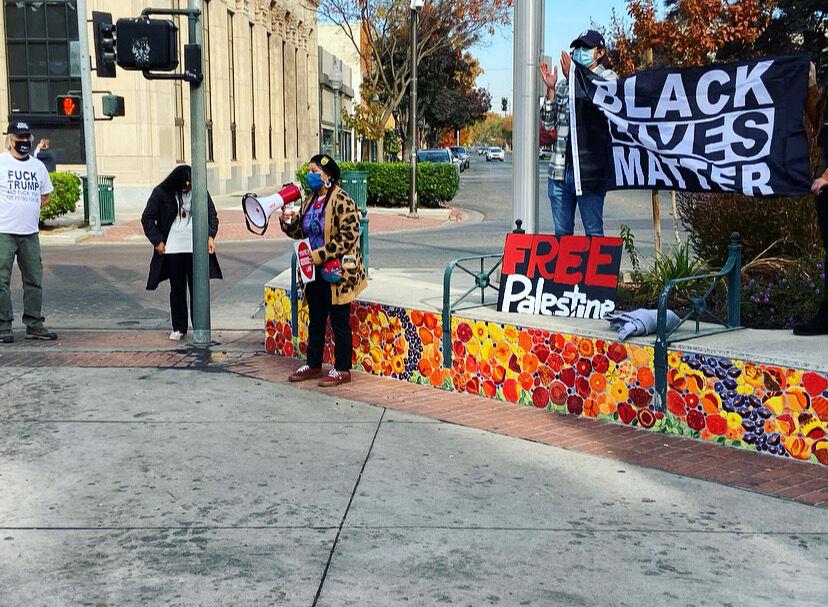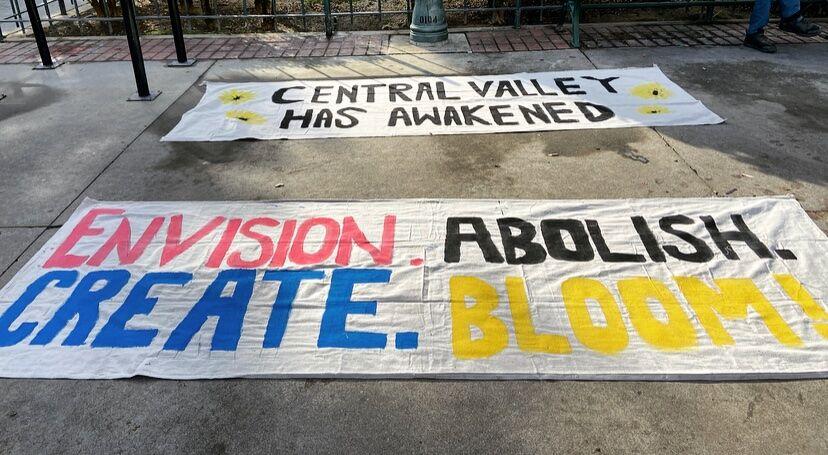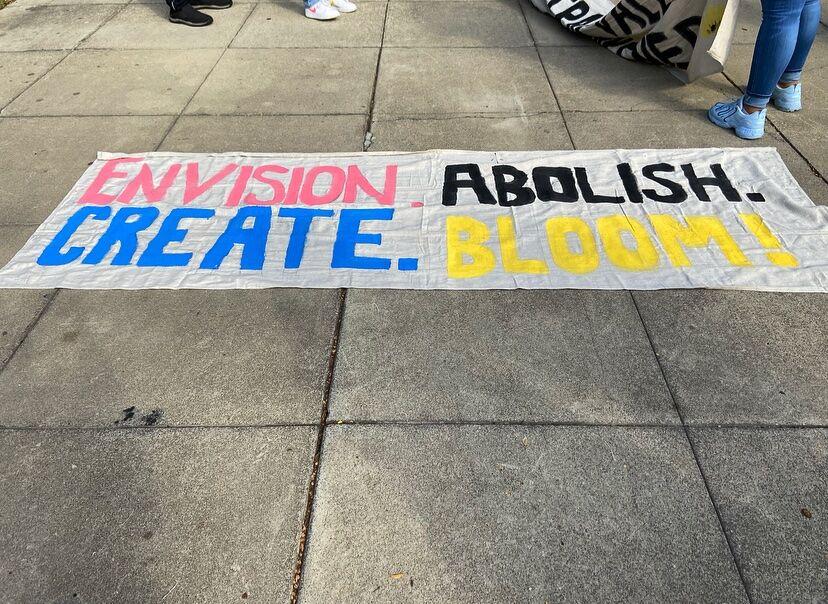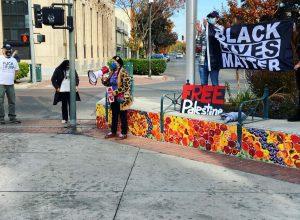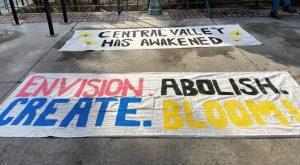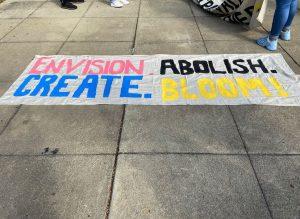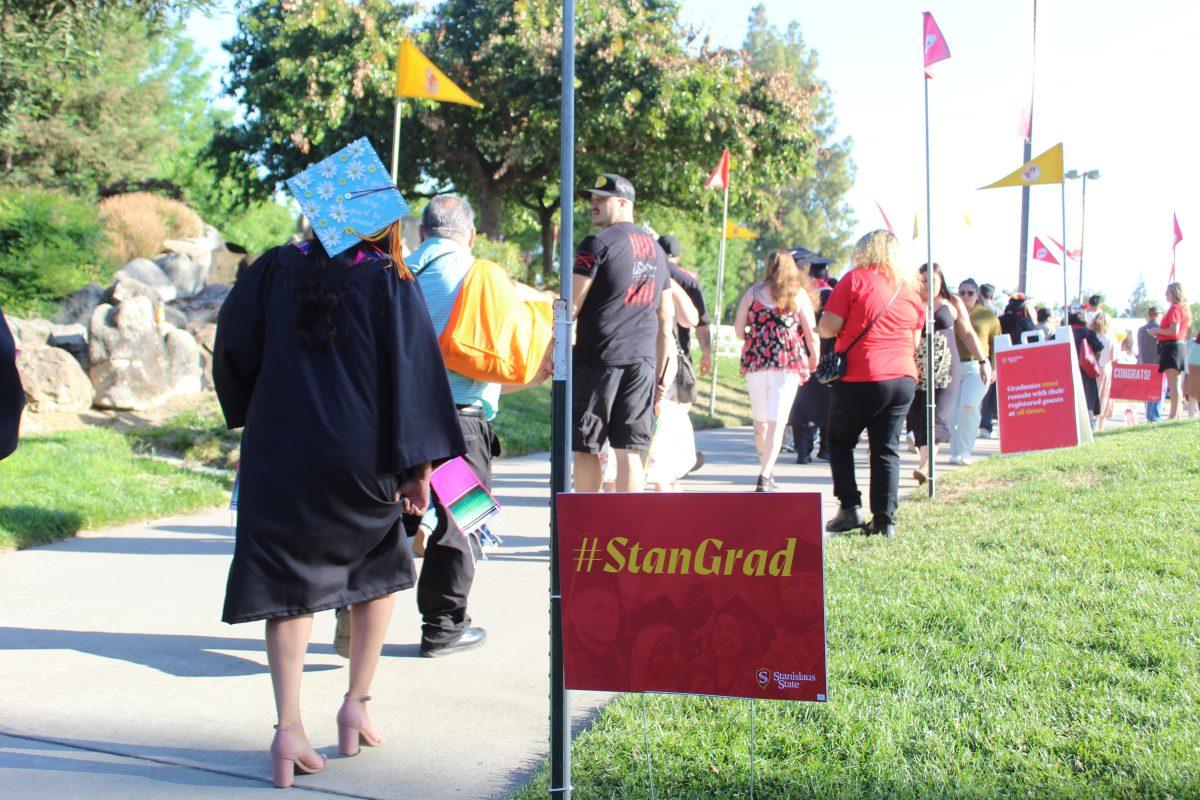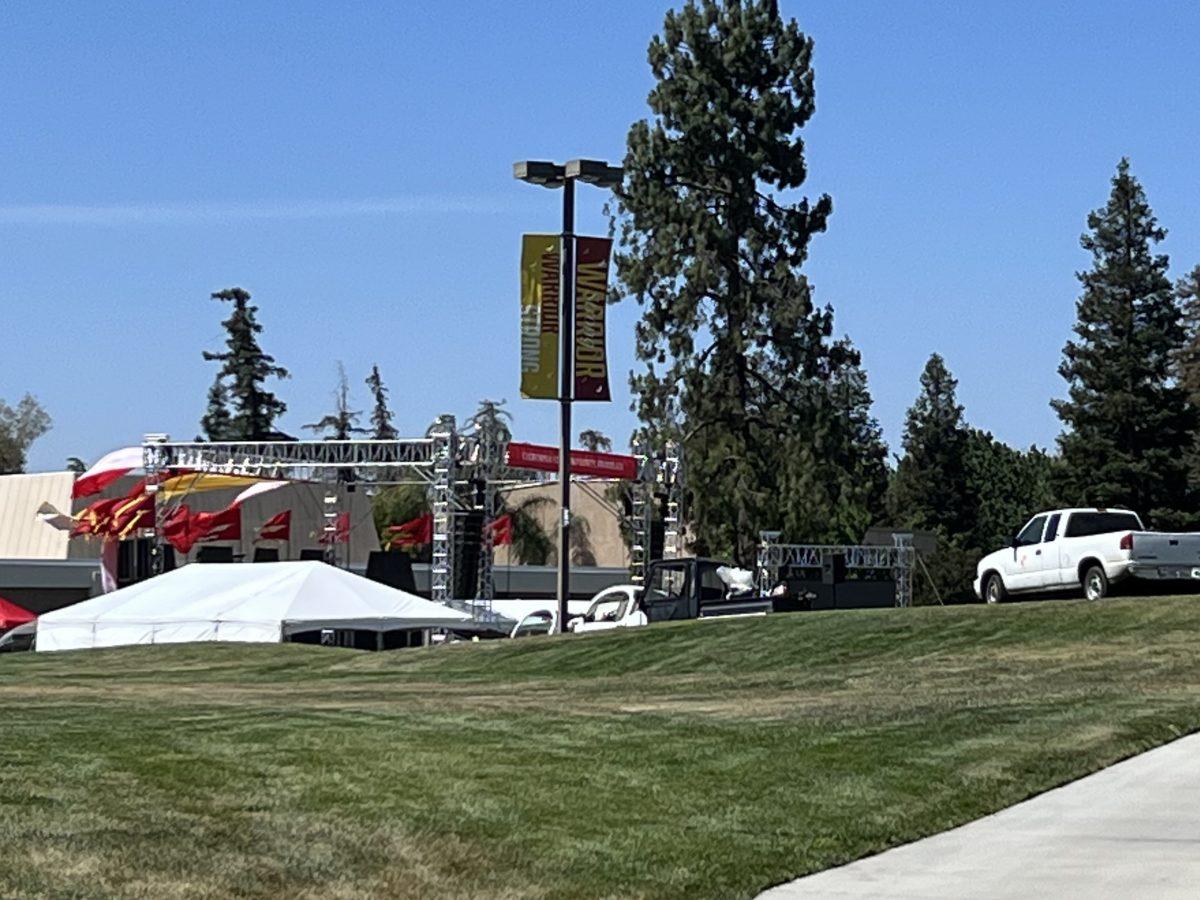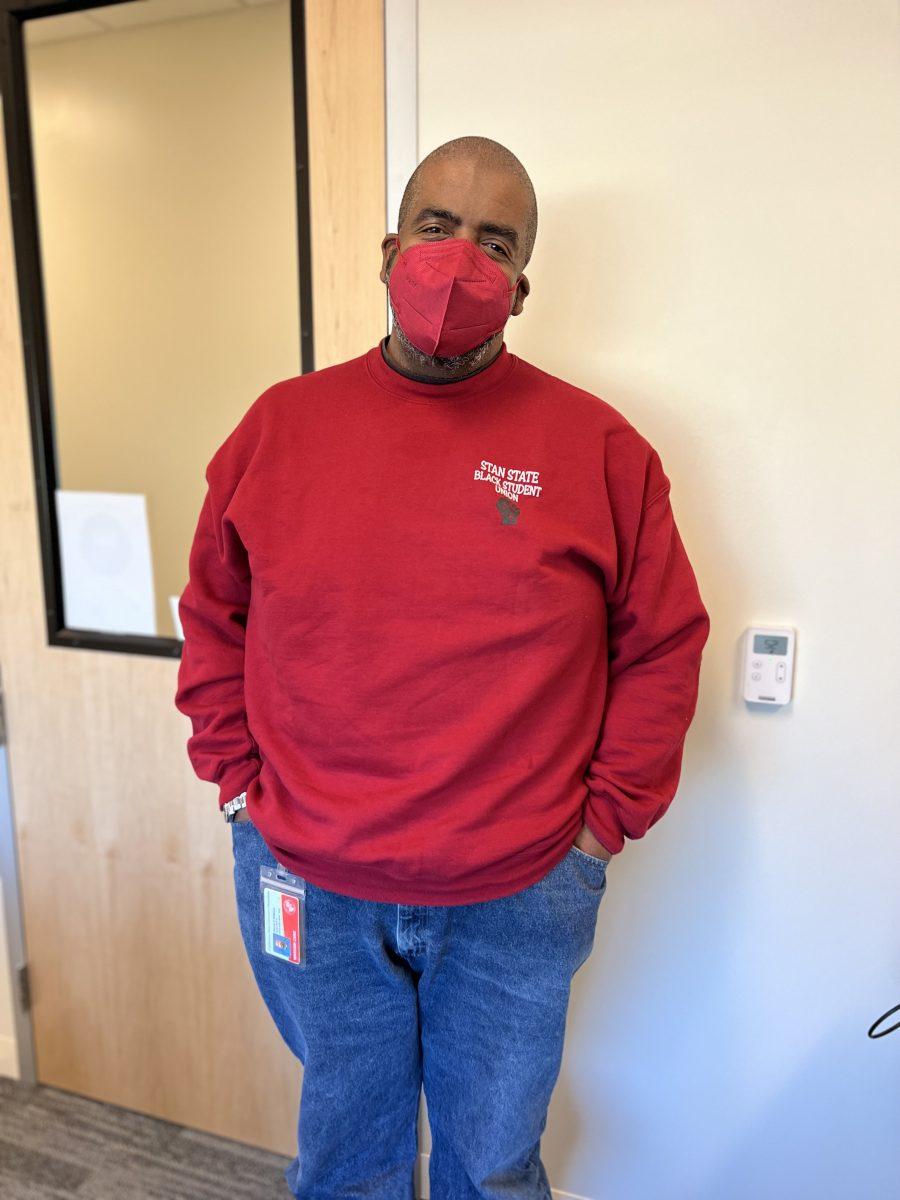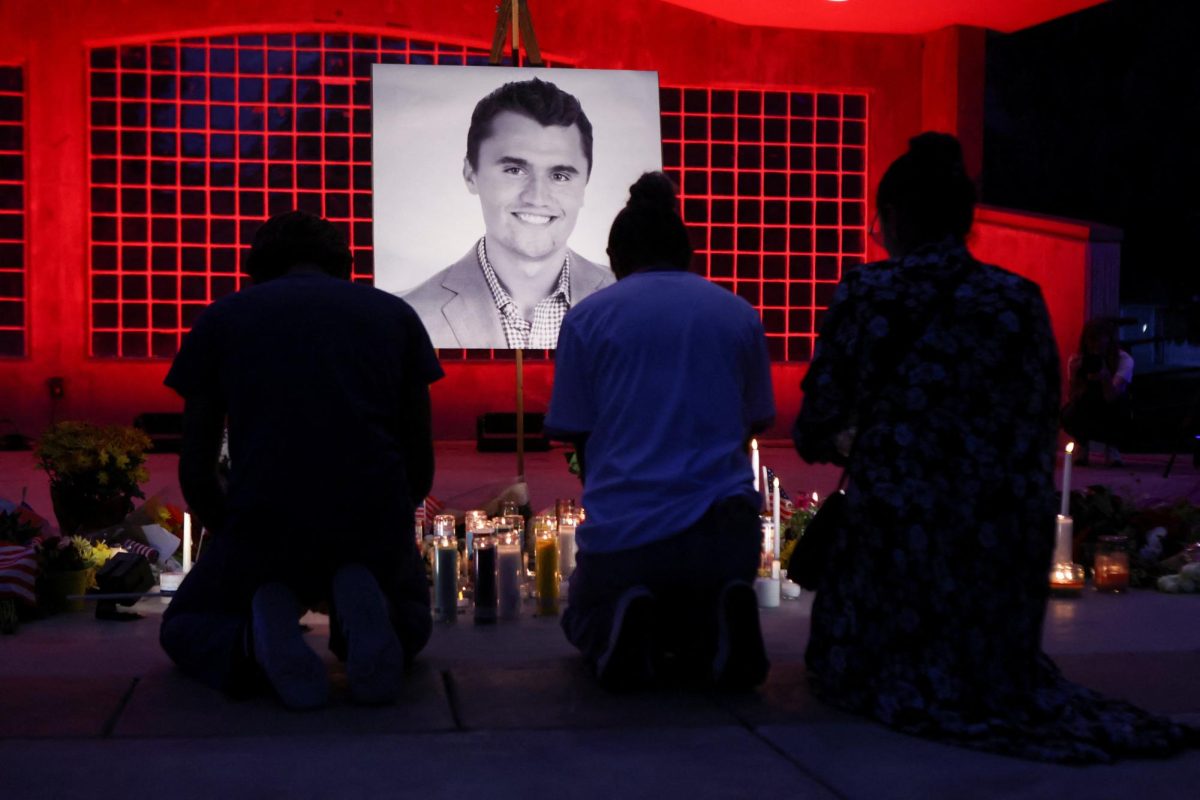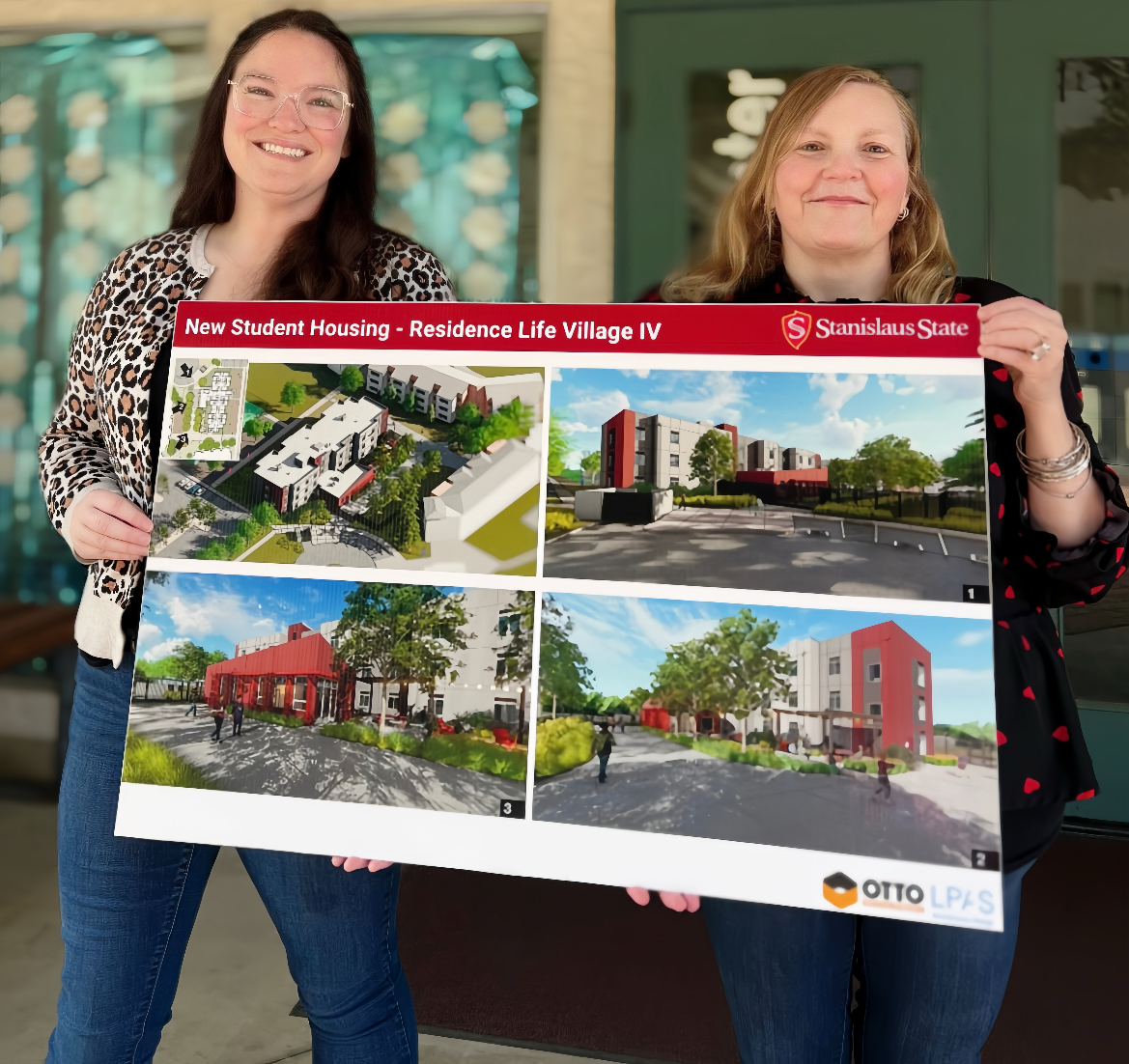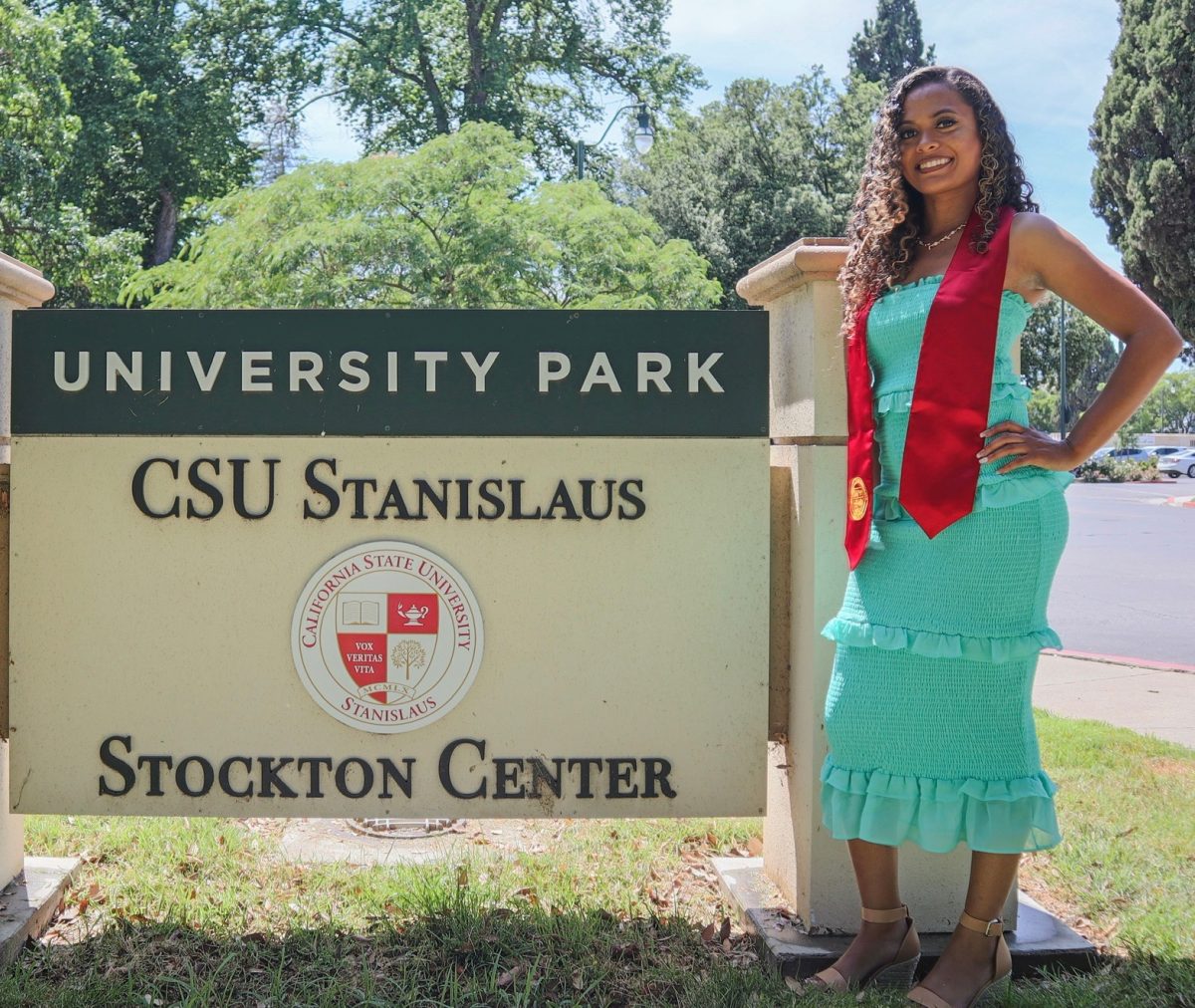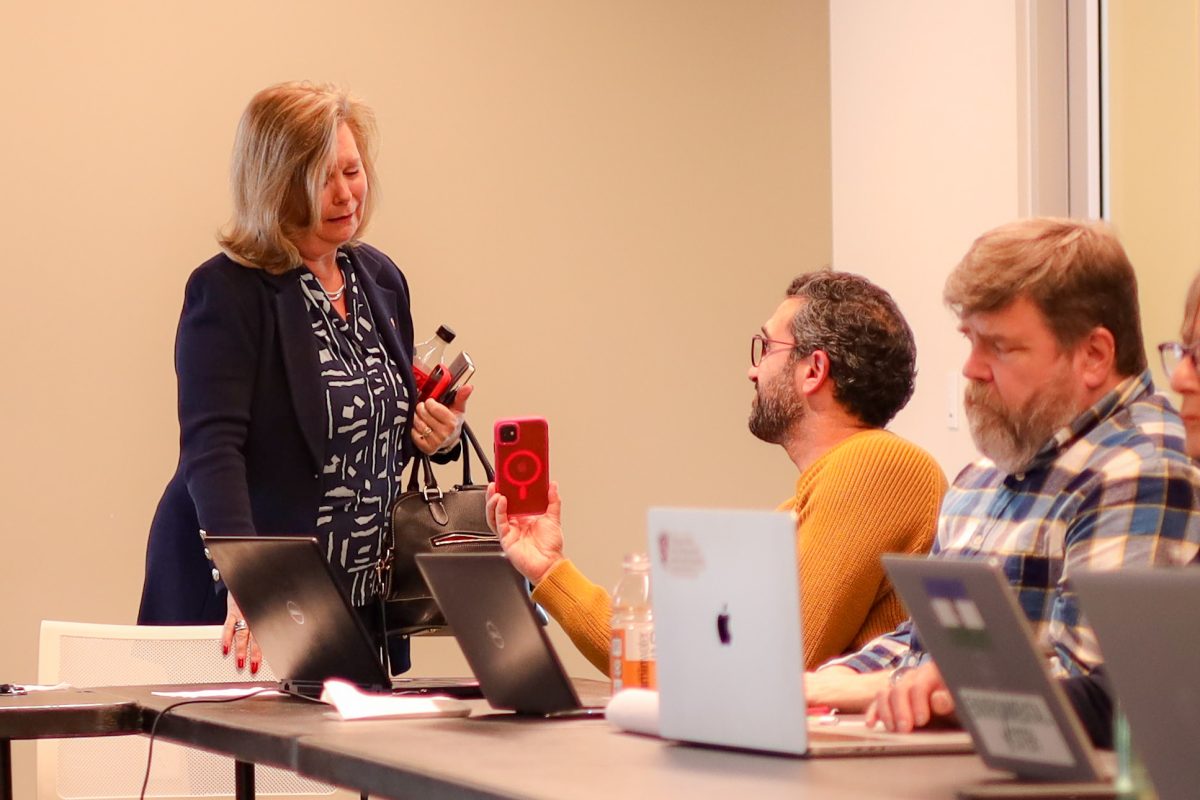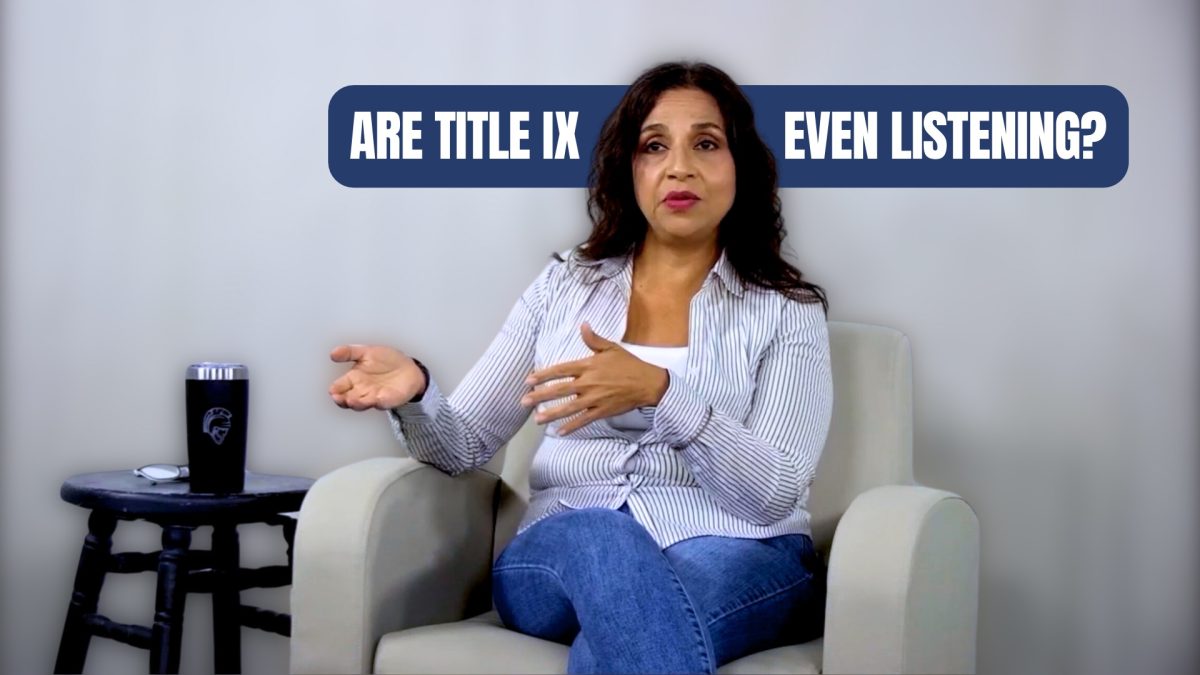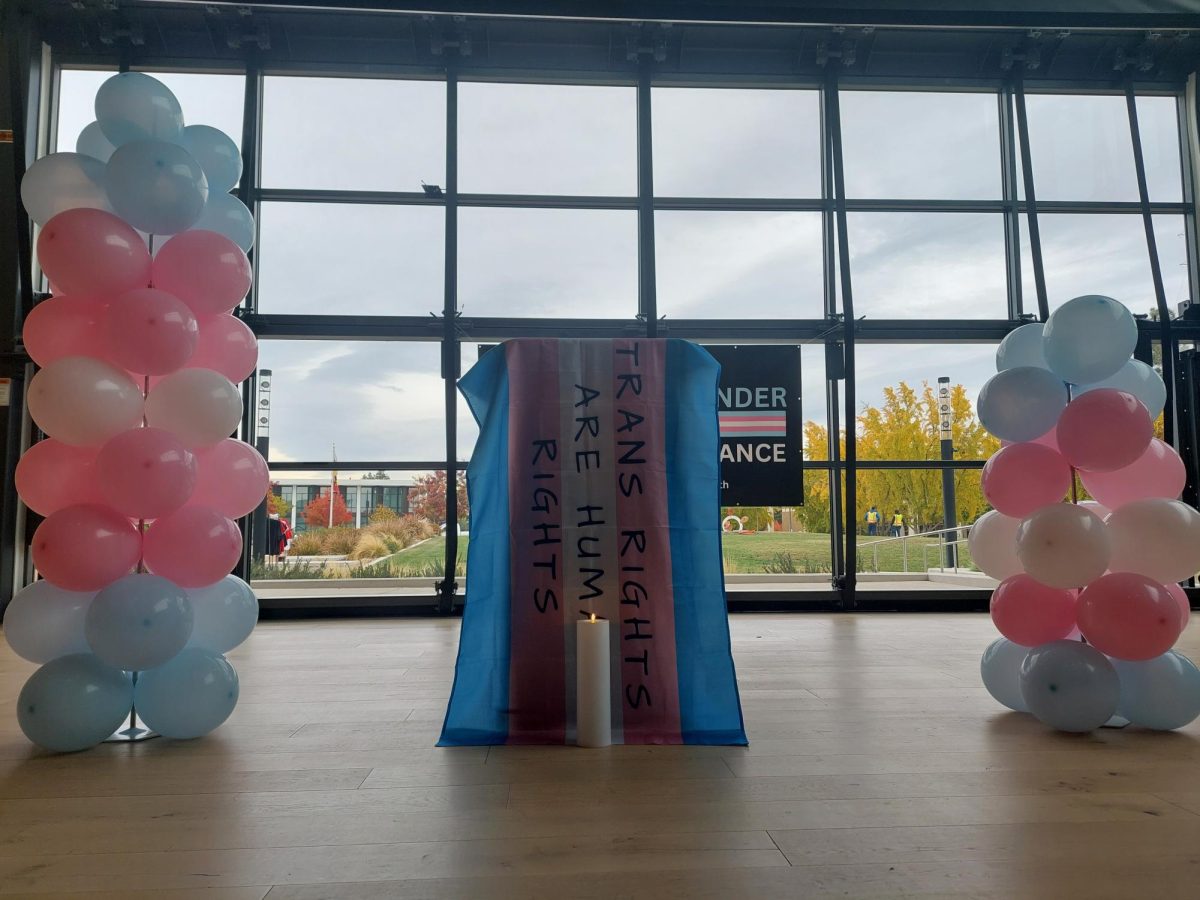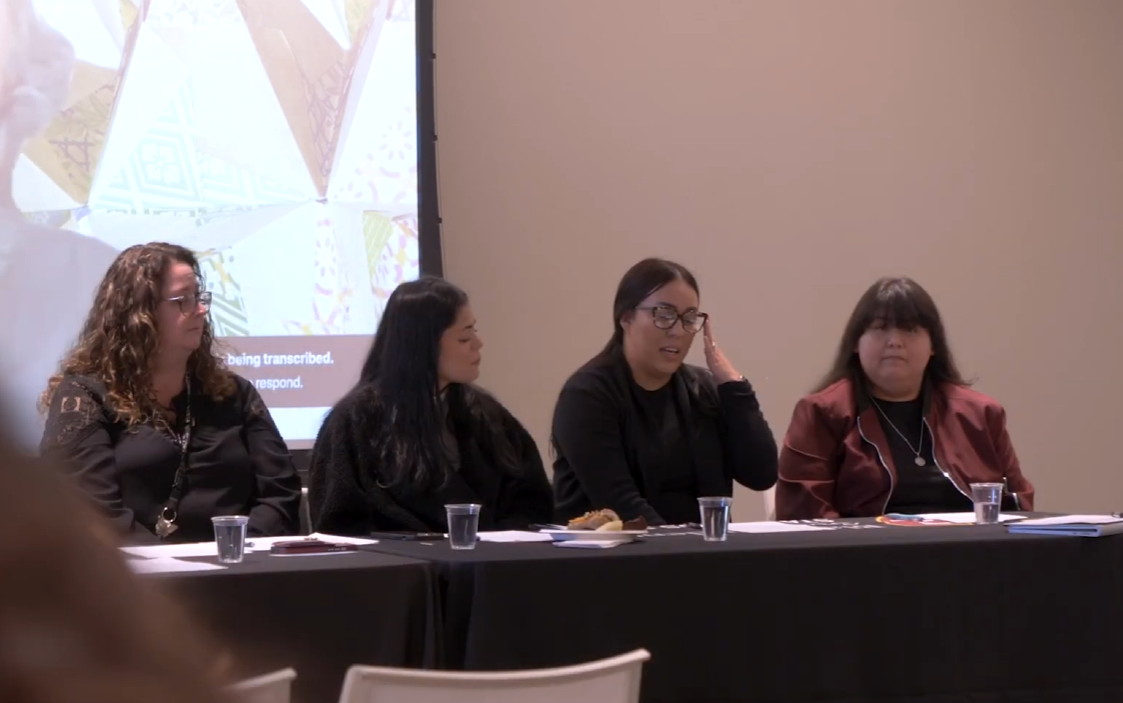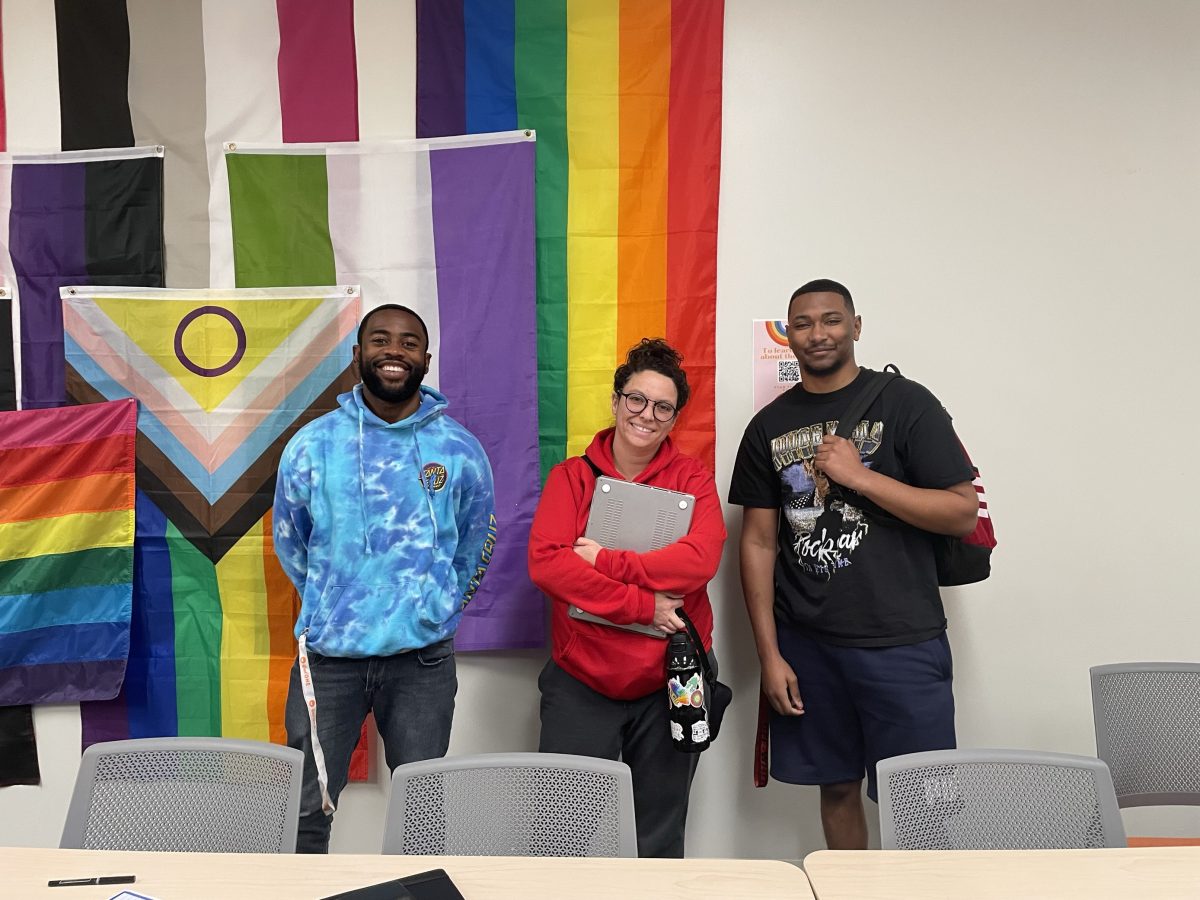Giant flags and powerful posters illuminated the Merced County Courthouse Saturday morning as dozens of empowered community members came together to prove that, although Joe Biden has been named president-elect, the fight for liberation of all marginalized peoples continues.
The protest began with a warm welcome by Efren Diaz, member of Blooms of Liberation.
Blooms of Liberation is a collective founded by Central Valley organizers striving to spark and create change in the Central Valley and ultimately curate the liberation of all marginalized folks.
Diaz explained how the protest was going to take place, how the safety of everyone in attendance was going to be maintained, as well as why this protest was occurring in the first place.
Stan State alum and Blooms of Liberation member Julissa Ruiz Ramirez opened up the event with a Land Acknowledgement stating that everyone in attendance was on Indigenous Yokut Land. She also put a strong emphasis that the Yokut Nation is not the only Indigenous group that owned this land, as other groups also must have owned this land, but their existence and trace was erased due to colonization.
The organization of the protest was a collective effort. Blooms of Liberation, as well as Merced Black Alliance and Merced People of Color were just some of the collectives that provided masks, hand sanitizer, posters, flags, and even drinks for all of those in attendance.
“It was inspiring to see everyone just trust each other and have each other’s backs. If anyone needed anything, someone was sure to provide it,” said Monache High School senior Cassandra Plascencia.
After the welcoming, Land Acknowledgement and house rules were explained, the march commenced.
Powerful chants by Blooms of Liberation member Daniel Garibay and Danika Doris of BLM Manteca filled the air as protesters followed behind them keeping the same energy. The chant leaders took part in empowering and hyping up the crowd.
The march stopped at a town center, where Diaz introduced speakers from different collectives and organizations. Each speaker had their own goals and objectives, but the overall theme was empowerment, abolishment and radical change at both a national and local level.
“We call for President-Elect Joe Biden to immediately improve conditions and provide aid to the children locked in cages at the border, 15 days after he takes office,” said Brown Beret Jesse Ornelas, adding, “[we call for] amnesty for those children to be free from oppression or fear from being sent back. We are prepared for direct action, meaning we are willing to get arrested for doing what we need to do.”
Among other topics was that of unlearning. Danika Doris of BLM Manteca gave an extremely powerful and emotional speech on how she is teaching her students, police officers and community members their own history as well as how to unlearn it.
“Officers are [originally] slave patrols. They need to learn that, to undo that,” Doris said.
Doris also explained how change is gradual, not immediate.
“The Birmingham Movement lasted 37 days, The Freedom Rides lasted 7 months, The Montgomery Bus Boycott lasted 382 days. I have been protesting since May…we have all been fighting for months, years, centuries. Ever since Christopher Columbus stepped foot on this land, we have been fighting and we won’t stop fighting,” said Doris.
Doris also highlighted how Black folks, in particular, Black Transwomen are the ones most marginalized by the system as a whole.
“87% of transgender women are murdered and there are no news, media, or talks about that. Many of them are teenagers and there are no amber alerts for them when they go missing. Of that percentage of murdered Transwomen, 80% are Black. 87% of Transpeople are getting murdered of that, 80% are Black people. That is not ok,” said Doris.
This was a common theme between most of the speakers. Not only are marginalized folks getting disadvantaged by the system in place as a whole, they are also literally getting killed. Their lives are at risk.
Stan State student and Indigenous Students in Activism (ISA) member Jaz Diaz was also a speaker at the event. She brought up the idea of baby steps. Abolishment takes time.
“This is the fusing of the revolution, but at the same time we have to look inward. We need to take care of ourselves, to know our neighbors because we want to talk about abolishing the police, but we have to first defund the police. We need to distribute those funds, especially here in Merced,” said Diaz.
Many other speakers continued to advocate their causes, which became a universal understanding between all of those in attendance. The struggle for liberation is universal and it can only be achieved with the power from the people.
After all the speakers spoke, everyone marched back to the courthouse. Although many seemed tired from walking and standing, the energy and chants remained as loud and energetic as the first march.
At the courthouse, the march and protest ended with a socially distanced roundtable discussion in which many Central Valley activists and organizers talked about police brutality, institutionalized racism, white privilege and the hope of planting the seeds that may one day bloom liberation for all.

